#count Tyrone Rugen
Text

Just a silly drawing because they need content :]
#There's almost no fanart of them. I'm just trying to fix that ><#The Princess Bride#Prince Humperdinck#Count Rugen#Tyrone x Humperdinck#Humperugen#<- I liked that suggestion#my drawings
104 notes
·
View notes
Text
rewatching princess bride for the 5 time and how come I never noticed the chemistry between Prince Humperdinck and Count Rugen???
*insert quotes that were very out of place with the murderous, scheming humperdinck, and ESPECIALLY PAIN LOVING Tyrone RUGEN*
Humperdinck: "Tyrone, you know how much I love watching you work. But, I've got my country's five hundredth anniversary to plan, my wedding to arrange, My wife to murder, and Guilder to frame for it. I'm swamped."
Rugen: "Get some rest -- if you haven't got your health, you haven't got anything."
And then the fact that he is getting a bride, then having her murdered for political reasons... but there's got to be other ways to justify a war... so maybe he is under outside pressure to find a bride... hang on, why doesn't he have one already?
there is a reference to criminals being sent to Australia, meaning that the film must be set after 1788, but well before 1941 as the book has been passed down at least 3 generations... so assuming the society in the fantasy country of Florin is similar to ours, homosexuality was more likely frowned upon back then... so this would mean that if Rugen and Humperdinck had hots for each other, they would not be able to wed...
#prince humperdinck#the princess bride#count rugen#humpeldinck x rugen#tyrone rugen#forbidden love#rugen loves pain#but doesn't want to see his lover in poor health
1 note
·
View note
Text
NO MOM SAID MIHAWK GIVES COUNT TYRONE RUGEN VIBES
10 notes
·
View notes
Text
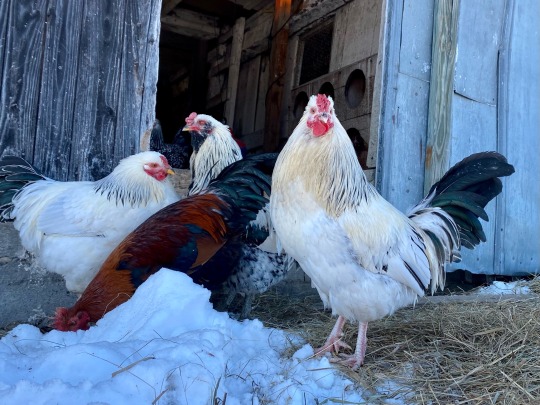
We’ve decided to retain this Dorking cockerel so he’s been named and his name is Count Tyrone Rugen of Florin, the Six-Fingered Man, as portrayed by Christopher Guest, Fifth Baron Hayden-Guest, in the Timeless William Goldman Classic The Princess Bride (1987), Based on his own 1973 Novel The Princess Bride: S. Morgenstern's Classic Tale of True Love and High Adventure, the "Good Parts" Version
That’s all good night
#chickens#the light Brahma in the back left is Danny Devito#Birch in the back gets to stay because he’s actually a super good guard roo#the Welsummer is going in the soup unfortunately lmaoooo
20 notes
·
View notes
Text
Absolutely obsessed with the fact that count rugen’s first name is Tyrone in princess bride and no one talks about it
6 notes
·
View notes
Text
The Princess Bride, by William Goldman
Uh, so I reread this and accidentally wrote a rough draft for an academic essay on the satire and differences between the book and the movie. It's long... Sorry!
Most of the time, the book is better than the movie. It's inevitable, really. You get more of the story, more time with the characters, more of the why.
Sometimes, the movie is better than the book. I personally like the movie versions of Bridget Jones's Diary and The Shawshank Redemption more than the books.
And then you have things like The Princess Bride where the book and the movie are almost like the storytelling equivalent of divergent evolution. Both sprang from a common source (the imagination of William Goldman) but slot into separate niches. I'm of the opinion that it isn't fair to compare the one against the other to decide which is better because that's like comparing riding in a car to riding a horse. They can both be enjoyable, and get where you need to go, but they are fundamentally different experiences.
You can, however compare and contrast the two to analyze both.
So, I think that's how this one will go.
The bones of the book and the movie are the same.
Boy is sick, family member (grandfather in the movie, father in the book) reads the boy The Princess Bride by S. Mortensen.
The Princess Bride follows the beautiful Buttercup and her love, the farm boy, Westley on their journey of fencing, fighting, true love, and adventure.
The book, however, takes the framing device of a sick boy being read to a lot farther than the movie with Goldman inserting a fictionalized version of himself and his family in there. He was the sick boy, and when he realized that his father only read him the good parts of The Princess Bride, he decides to abridge it.
Goldman says that in the unabridged version, Morgenstern was satirically commenting on the royalty and general attitudes in Florin (which is a real place in this universe).
I think what Goldman is actually poking at is the archetypes and tropes of fairytales.
We have Buttercup, our damsel in distress, who has been in plenty of distress, but most of it, not coming from the villains.
We have Westley, our hero who spends very little time actually being heroic
Inigo Montoya, who is sort of cast as a sidekick, but if you really look at it, does most of the heavy lifting and has the only true hero arch in the whole story.
Fezzik, who is cast in the role of Inigo’s sidekick, but the action would have gone nowhere without him.
Count Tyrone Rugen, Vizzini and Prince Humperdinck who, are all deeply fucked up, but have to be taken together to make one fairytale villain.
And all of these are complemented but slightly contrasted in the movie to really shine a light on Goldman skills as a writer.
In the movie, Buttercup is beautiful, and that is just taken as a given first because Robin Wright is playing her, also, of course she is beautiful, she’s going to be our princess.
However, in the book, beauty is the first concept to be lampooned. The reader is told about the most beautiful women in various years of Buttercup’s life. The worlds women are ranked, and someone somewhere is keeping track.
The year Buttercup was 15, she was barely in the top 20 most beautiful, on potential alone. Of course, she didn’t really notice when the boys started flocking to her. And she would have been baffled if she had known that, two years later, the reason that Count Rugan visited her parent’s dairy farm was because of rumors of her beauty.
It was only when she and Westley fall in love that her potential starts to be realized (It should be noted here that Westley only seems to love her for her beauty at this point since he calls her “not the brightest”). Westley, immediately after they declared their love for each other, decided bugger off to America to make money for their life together. Buttercup decides to start taking care of herself and began climbing the ranks.
By making beauty the focus around Buttercup, Goldman is making an interesting commentary because at this point, there is nothing special about Buttercup, other than the fact that she is beautiful. In all other ways, she is fairly unremarkable. She does her chores, and she likes nothing more than to ride her horse. Think of the classic fairytale heroine, they don’t display any particular aptitude for much of anything, they are just pretty things to be rescued. They don’t need to develop anymore. And Buttercup is fitting into this mold well.
Then news comes of Westley's death. Her heart is broken, and she grieves, and she makes a vow to never love again.
She now has aptitude at something, being brutally practical. She made the decision after she lost Westley to carry on and that's just what she does.
So, when Humperdinck decides he wants a beautiful wife, the Count, remembering Buttercup's potential, turns the prince's head toward her.
Humperdinck asks her to marry him and she refuses until he makes it clear that she will die if she doesn't, and that he isn't looking for a love match, only someone agreeable to make an heir.
So it's either marry the Prince or die. Since he doesn't want her to love him, that would mean dying for no good reason, and that would be stupid, so she agrees.
Even after Westley returns, this doesn't really change.
In the movie, when Westley and Humperdinck face off for the first time and Buttercup agrees to go back to the castle as long as Westley isn't hurt, she says: "I thought you were dead once, and it almost destroyed me. I could not bear it if you died again, not when I could save you."
Romantic and self sacrificing.
In the book, the same scene goes like this:
“The truth,” said Westley, “is that you. would rather live with your Prince than die with your love.”
“I would rather live than die, I admit it.”
“We were talking of love, madam.”
There was a long pause. Then Buttercup said it: “I can live without love.” (pg. 191, Kindle edition)
Oof, harsh. In fact, Westley who doesn't give up, seems to spend the rest of the story, until their reunion, thinking that she did this for money and power.
It is clear, however, that Buttercup doesn’t care about either of those things, never has. She's willing to be queen, but doesn't lust after the power it would give her, and she never mentions money.
She says she can live without love, because she already has.
Westley's reality of the three years they are separated is not the same as Buttercup’s. He never utterly lost her, his vision of the future with Buttercup never changed.
Buttercup’s reality had a grenade thrown into it. Westley was dead, nothing was going to be like she thought, and she experienced pain she had never been through before. Love was off the table after that.
When Westley returns, she is happy, yes, but when faced with the prospect of both of them dying, that brutal practicality came out.
Living without Westley was nothing new, so she would just be continuing on the same path. This would be better though because at least Westley would be alive. She learned to live without love, Westley could do it too.
She does have a change of heart later, and that triggers the unhinged rescue mission that is my absolute favorite part of either book or movie. But even with this veering back on to the path of traditional princess narrative, she ignores the typical princess trappings.
Buttercup also manages to turn the damsel in distress role upside down.
She doesn't suffer all that much at the hands of Humperdinck, or even Vizzini, Inigo and Fezzik when they kidnap her on Humperdinck’s orders. in fact, the prince goes out of his way to be nice to her until toward the end of the book. And the kidnappers are pretty respectful of her, even while they talk about killing her.
No, our Princess suffered most before she ever put down her milk pails, and this suffering and some that she would endure later didn't come from our villains, it came from our hero.
Ah Westley, in the movie, lovely. In the book, sort of annoying.
In the movie, Westley comes off as alternately confident, and lovelorn. He is always intelligent, and other than when he thinks Buttercup threw their love away (the first time), a generally sweet guy.
In the book... Well, he’s not unlikable, but he is arrogant. Very intelligent, but not so much in the emotional department.
In the movie, the way it comes across, is that the two leads fall in love over a period of time, spend a period of time being in love together, and *then* Westley goes off to make his fortune.
In the book, Buttercup realizes she loves him, tells him, then he confesses that he’s always loved her *and then he leaves*. Less than a night between “I love you” and “Bon Voyage”.
Cary Elwes manages to make the attitude The Man in Black has toward the now Princess Buttercup, come off as anger inspired by hurt.
I don’t get that in the book. I mean, yeah, he’s hurt, but he’s mostly just pissed.
We find out how he survived being attacked by pirates in much the same way in both book and movie, eventually becoming the Dread Pirate Roberts.
Here’s a question I have always had no matter which version of the story I am thinking of: Three years, it takes for him to come back to Florin as The Man in Black. He couldn’t have dropped a letter to his girlfriend in all that time? He steps on shore for supplies, never once thought: “I should probably tell my one true love I’m still among the quick” ?
Yeah, yeah, secrecy and all of that, had to keep being the Dread Pirate Roberts. But movie Buttercup is bright enough to know not to say anything, and book Buttercup wouldn’t have needed details. And yeah, it would be a challenge to get letters back to him, but considering this is a world where miracle men can bring a dead man back to life with a chocolate pill, you would think that the most feared pirate in the world could figure out some kind of relay system. And then, when Humperdinck says “Marry me or die” she could use that relay system to get a letter to Westley and maybe things would be delayed what with one thing or another, and the whole kidnapping plot and stress can happen, but with the added benefit of Buttercup not being emotionally traumatized and Westley not acting like a dick.
But, the way the plot and his character is set up, this is a case of Goldman going after the classic hero.
The swashbuckling saver of ladies and practionor of daring dos are never in doubt of whether they are in the right and doing what is best for all, and because the narrative is on their side, they are not burdened with the needs of others, because the will align with his.
Westley is this hero, which is why he is able to hold fast to his romantic (in the literary sense) ideals. Life hadn't emotionally knocked him around. That's why when Buttercup leaves him after the fire swamp, he can't even compute things not going his way. It's not until he is actually killed and brought back does he have a crisis of faith. His doesn't last as long as Buttercup’s, because Westley has Inigo and Fezzik to shake him out of it, while Buttercup worked through her's alone.
This is another subversion of the normal fairytale. The men in this book need a lot of help and the women really work stuff out. Namely Queen Bella and Miracle Max's wife, Valerie. Things wouldn't have happened at all without the former, and would have come to a screeching halt without the latter screeching at her husband.
Westley really learns humility at the end of his journey rather than having his wonderfulness confirmed.
And two characters in particular help him get there.
Inigo Montoya and Fezzik are without a doubt my favorites. The Inigo and Fezzik are more fleshed out in the book, but are fundamentally the same characters. Both of their backstories are awesome and worth the read all on their own.
I mentioned earlier that Inigo has the only true hero arch in the book. Here's what I mean: He has an origin story that makes us care about him (losing his father to the six fingers man, over a sword) he works hard to learn sword play, devoting himself to it utterly. His quest is clear, avenge his father by killing the six fingers man. He loses his way, has a crisis of confidence, and finally completes his quest.
Although arguably somewhat amoral, he is kind to Fezzik and is generally loyal. He is not presented as our main protagonist, yet he spends more time doing things that would eventually rescue Buttercup, than Westley does.
But he lost to Westley, and heros don't lose!
Well, a big theme in this book is that life isn't fair, and I would argue that that is only half of the message, the rest is: and hubris will kick your ass.
Westley is a master swordsman, but if you read the scene in the book, you will see that he is not better than Inigo.
Inigo starts the duel left handed, for more of a challenge. Westley also does this, and that makes for the wonderful "Got'cha" moment where Westley beats him.
What you have here is two over confident people meeting at the same time.
The reader is told that Westley does his best fencing on open terrain, When Inigo gets him in the trees or around rocks, he wasn't as formidable. Inigo, by contrast, is an expert no matter what ground he is fighting on. By time both fighters are using their dominate right hands, Inigo is shaken - someone who pulled his own trick on him! This shock made him a fraction off his game, and meant that he was not able to maneuver Westley into terrain where Inigo would be able to get the upper hand.
If Inigo would have simply used his right hand at the start, it is possible that the fight would have been over as soon as they made it to the rocks,and long before Westley would have had a chance to switch to his right hand. But, he didn't, and he lost.
And he does learn this lesson, as hard as it was, and he didn't have to die to do it.
Fezzik is presented as the sidekick's sidekick
But, if it weren't for him overcoming self doubt and fear to simply survive, nothing would have worked out.
Growing up a giant with a gentle heart wasn't easy for Fezzik, especially because he had to learn to fight, not just for defense, but for a living, but he did what he had to for survival. In this way, he is very much like Buttercup.
When Westley bests him, he doesn’t have a crisis of confidence, instead he's afraid because Vazzini is dead, and he assumes Inigo is too.
But he knows he has to carry on, so he joins the Brute Squad that was formed on command of Humperdinck before his wedding. And that's how he found Inigo. If he hadn't figured out a way to live without being on Vizzini 's crew, Inigo would have been blind drunk when the count killed Westley and Humperdinck would have won the day.
Humperdink, the Count and Vazzini are fairly straightforward villains in my view, though fairy ineffectual on their own. Humperdinck has the power, and the means. He wants Buttercup dead so he can blame Guilder and go to war. Vizzini is seen as having the brains, he Inigo and Fezzik are hired to carry out the plot. Vizzini is an assassin, he does what the money tells him to do. When Westley cocks that up (and to be fair Westley does out smart him) Humperdinck decides to just do it himself.
The six fingered man is just interested in pain, as a hobby. He's not looking for power or gold, he has what he needs there. If he could hire people to hurt and study, he would. Also, he puts no thought into the consequences of his actions. He's a noble, there won't be any.
These three, are a commentary on power. Those who have it want more and also will abuse it, and will use those without it to meet their ends, and while the characters are different from book to movie, they seem to be making the same point, and in the end it is the people they abused that wind up being their undoing.
What's interesting between book and movie is that Goldman's outlook seem to have softened a little. There is a lot of pointed sarcasm and sharp satire in the book that is mostly subtext in the movie.
The true love through line feels more developed than it was meant to be in the book. In the book, up until the middle, Westley and Buttercup represented a literary ideal more than an actual fleshed out relationship. To be blunt, there isn't a lot of chemistry between the two until after the second reunion, and considering the way the other characters are written, I have to think this was deliberate. It's a commentary on the fairytale "I've known you for 17 1/2 minutes, let us spend our lives together" love story.
Not so in the movie.
Was this change just because Goldman didn't feel like the edged stuff would translate well to screen? Or did he decide, like his fictional father in the book, that a little high adventure and true love can make you feel better?
I don't know, but what I do know is that I love both versions.
If you want satire, and comedy with a lot of heart and just enough darkness to keep you grounded, go for the book.
If you want adventure and laughs, that keeps a wry smile and a wink turned your way watch the movie.
6 notes
·
View notes
Text
had awkward exchange the other day where I flubbed an interaction and pretended like I didn't know who Count Tyrone Rugen was -- that panicked response of normal life brushing up against one's side blog proclivities
#like... why did I play dumb?#heaven forbid I be Known#I still have not resolved any of the tensions between primary and side blog(life?) behaviors/interactions/realities...
2 notes
·
View notes
Text
My princess bride opinion is that both count rugen and prince humperdinck are gay and they tried to date because they have similar interests(torture)(political murder) but then they both thought the other was insufferable so they mutually ghosted thinking the other was devastated but the florin gay scene is somewhat lacking(thats why humperdinck wants to invade guilder)(they have great nightlife there) so they continue to fuck but theyre both really passive agressive towards each other(Tyrone you know how much I love watching you work but I've got my country's 500th anniversary to plan my wedding to arrange my wife to murder and Guilder to frame for it; I'm swamped!)(Get some rest. If you haven't got your health then you haven't got anything)
5 notes
·
View notes
Text
now i don't have the brainpower to fully analyze this right now, but i do find it interesting how the only two characters in the princess bride with full names are inigo montoya and count tyrone rugen. y'know, the ones who tried to kill each other on multiple occasions
#the princess bride#inigo montoya#count rugen#nick is reading#maybe i'll expand on this later#they have the most fulfilling arcs in the story bc inigo gets to murk him
11 notes
·
View notes
Text
The Perfect Line
Inigo had to have the perfect line.
It had to be perfect.
It had to strike terror into the heart of the six-fingered man.
Greetings to you, sir, though perhaps you are unworthy to be addressed as such
No. Too wordy.
I'm going to send you six feet under, one for each of your six fingers!
Snappy, but not quite.
YOU ARE SO DEAD!
Hmmm...
I am Inigo Montoya, son of Domingo Montoya, whom you killed. You are so dead.
A bit better, sort of. Maybe the indirect approach?
Hello. I am Inigo Montoya. Care to join me for a mug of beer?
Bad idea.
But he liked the 'hello' part.
Hello, I am
No.
Hello, my name is Inigo Montoya.
That sounded good.
Hmmm...
Maybe add the part about dying.
Hello, my name is Inigo Montoya. Prepare to die.
Inigo smiled and turned his face up to the sky. "How do you like that, Father?"
Oh. Wait.
Hello. My name is Inigo Montoya. You killed my father. Prepare to die.
Perfect.
All right, he could begin his hunt.
#the princess bride#inigo montoya#tyrone rugen#count tyrone rugen#prepare to die#iconic#domingo montoya
18 notes
·
View notes
Text
Greetings,
I am Count Tyrone Rugen. My employer is Prince Humperdinck of Florin. I am also the Grand Vizier to the aforementioned ruler.
Other things you may wish to know about my person: I enjoy a glass of Gilderan port in the evenings. I have six fingers on my right hand and have had tailored gloves made to fit it. My favorite color is somewhere between yellow and orange. I am thirty-nine years of age. I frequently don velvet and black leather. In terms of personal pursuits, I often engage in hunting and, notably, the study of pain. I may or may not have (allegedly) murdered the father of a swordsman who shall remain unnamed here. And no, my hair is not dyed.
Pronouns: your grace/my lord/grand vizier/sir/count/he/he’s/he’d/his/himself/they/their/they’re/them/theirs/themself/themselves.
DNI: In*go Mont*ya
Signed,
Count Rugen
This blog will behave and speak as though it is run by the ghost of Count Rugen himself (which it is). However, it is primarily a fan blog for the promotion of the 1987 film The Princess Bride — and the book which inspired it, The Princess Bride by William Goldman. This blog is very much alive and kicking — and part of the Princess Bride fandom. Please read the content on this blog as though it is first and foremost a joke (which it also is) and refrain from sending hate. Thank you.
PS - the age of Count Rugen described above is the age of Christopher Guest, who played the character, at the time the film came out in ‘87.
PPS - this blog will act like Count Rugen most of the time. This may vary depending on the mood of the Count and the mood of the ghost running the blog. For now assume that it will behave like the Count 70% of the time.
#vengeance#six fingered man#count Tyrone Rugen#Tyrone Rugen#Prince Humperdinck#Westley#Buttercup#no more rhyming and I mean it#The Princess Bride#TW pain + murder + hunting#Princess Buttercup#Fezzik#Vizzini#Inigo Montoya#you killed my father prepare to die#as you wish#S. Morgenstern#Princess bride incorrect quotes#incorrect Princess bride quotes#grand vizier of Florin#Florin Princess bride#inconceivable#books & libraries#movies#nature#dark academia#shitpost#textpost#poetry#poems
5 notes
·
View notes
Text
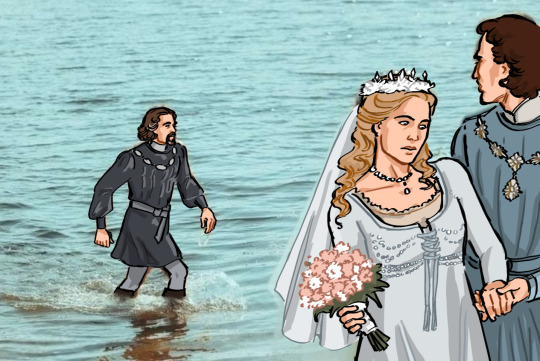
This is literally them.
#The Princess Bride#Buttercup#Prince Humperdinck#Count Rugen#Tyrone x Humperdinck#they need a ship name#meme#my drawings
91 notes
·
View notes
Text
Good men revenging those they love!!
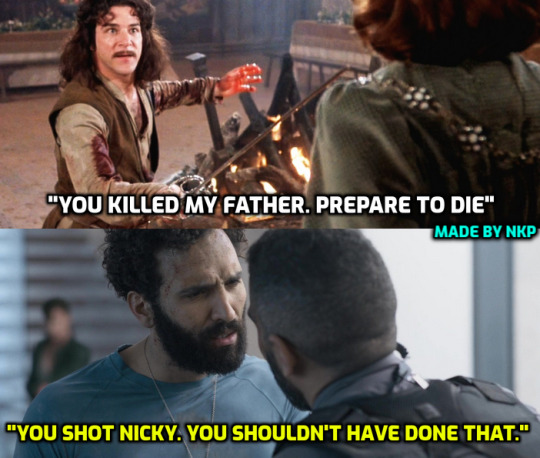
my creation: updated 19.11.20
#nicky#nicolo di genova#luca marinelli#yusuf x nicolo#yusuf al-kaysani#joe x nicky#joe#marwan kenzari#the old guard#the princess bride#mandy patinkin#inigo montoya#christopher guest#count tyrone rugen#mine: edits
128 notes
·
View notes
Photo
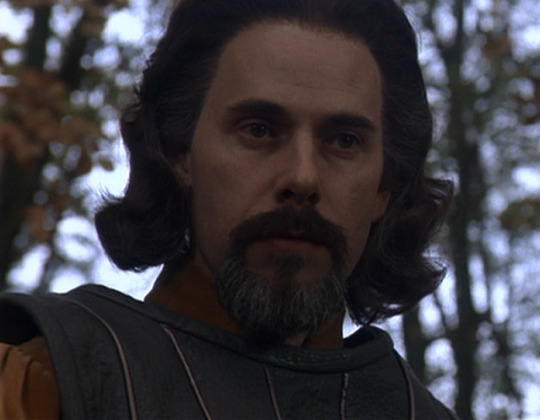
Today’s villain is Count Rugen from The Princess Bride
30 notes
·
View notes
Photo
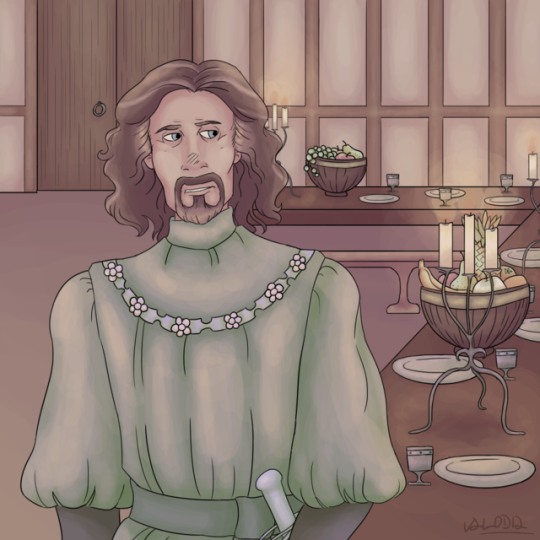
“I think that’s the worst thing I’ve ever heard. Marvellous.”
26 notes
·
View notes
Text
The Princess Bride Confession
I want to see a spinoff to TPB (1987), which is in fact a staging of “Edward II” by Christopher Marlowe.
Yes, Count Rugen as King Edward II.
Yes, Prince Humperdinck as Piers Gaveston.
#the princess bride#the princess bride 1987#King Edward II#Edward II#Christopher Marlowe#Count Tyrone Rugen#Prince Humperdinck#I WANT TO SEE THEM TOGETHER#I can't even#Give it to me#Give give give#Christopher Guest#Chris Sarandon
5 notes
·
View notes